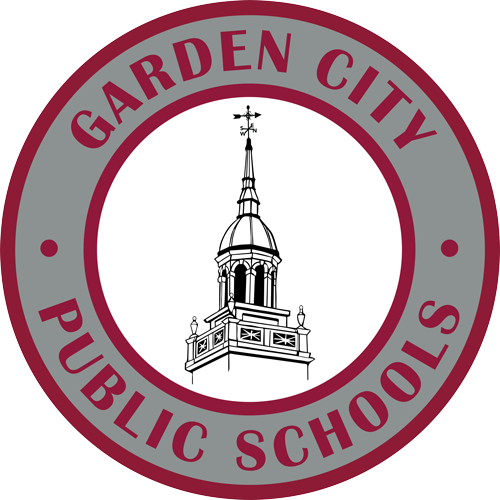6-8 PHYSICAL EDUCATION AND HEALTH
PHYSICAL EDUCATION
The Garden City Middle School Physical Education (PE) curriculum for grades 6 through 8 is designed to support students’ physical, cognitive, and social development during their formative adolescent years. Aligned with the New York State Physical Education Learning Standards (2020), the program emphasizes skill refinement, strategic understanding, personal fitness, and responsible behaviors to promote lifelong health and wellness.
Key Components of the 6-8 PE Curriculum:
1. Advanced Skill Development:
• Specialized Motor Skills: Students refine complex locomotor and non-locomotor movements, enhancing coordination and control in activities such as dynamic balance routines and intricate dance sequences.
• Manipulative Skills: Emphasis is placed on mastering skills like dribbling, passing, and shooting in various sports contexts, promoting precision and adaptability.
2. Strategic Application and Game Play:
• Movement Concepts: Learners apply principles of space, force, and timing to optimize performance in diverse physical activities, understanding how to adjust movements based on environmental cues.
• Game Strategies: Instruction includes offensive and defensive tactics, teamwork, and decision-making processes, enabling students to engage effectively in both individual and team sports.
3. Personal Fitness and Health Awareness:
• Fitness Planning: Students assess their fitness levels and set personalized goals, utilizing the FITT principle (Frequency, Intensity, Time, and Type) to create balanced exercise plans.
• Health-Enhancing Behaviors: Education on nutrition, mental health, and the benefits of regular physical activity empowers students to make informed lifestyle choices.
4. Social Responsibility and Personal Growth:
• Self-Management: The curriculum fosters resilience and perseverance, encouraging students to navigate challenges and celebrate personal achievements in physical settings.
• Interpersonal Skills: Activities are designed to enhance communication, collaboration, and respect among peers, promoting a positive and inclusive environment.
5. Appreciation for Physical Activity:
• Lifelong Engagement: Exposure to a variety of activities, from traditional sports to recreational pursuits, helps students discover personal interests that can lead to sustained physical activity beyond school years.
• Emotional Well-being: Discussions and experiences highlight the role of physical activity in stress management, self-expression, and overall mental health.
EXAMPLES OF UNITS:
Fitness Work
Flag Football
Soccer
Speedball
Volleyball
Team Handball
Four Square Skill Games
Pillow Polo
Basketball
Badminton
Pickleball
Base Games
Recreational Games
HEALTH EDUCATION
The Garden City Middle School Health Education curriculum for grades 6 through 8 is designed to equip students with the knowledge and skills necessary to make informed decisions about their health and well-being. Aligned with the New York State Education Department’s Health Education Standards, the program emphasizes a comprehensive, skills-based approach that addresses the physical, mental, emotional, and social dimensions of health.
Key Components of the 6-8 Health Education Curriculum:
Grade 6: Introduction to Mindfulness
This course teaches 6th graders the basics of mindfulness, focusing on being present and aware in each moment. Students will learn techniques like breathing exercises, body scans, and meditation to help reduce stress and improve focus. The course covers how thoughts and emotions affect our physical and emotional well-being and provides practical tools to manage these feelings. By the end, students will have skills to stay calm, improve concentration, and handle challenges more easily in daily life. The course encourages self-awareness and thoughtful responses to stress, both in and out of the classroom.
Grade 7: Traditional Health Education
The 7th grade health curriculum focuses on building a foundation for personal well-being and healthy living. Students will explore topics such as physical fitness, nutrition, mental and emotional health, and the importance of healthy relationships. The course includes lessons on making informed decisions about body image, self-esteem, and managing stress. Students will also learn about safety, substance abuse prevention, and the importance of sleep and hygiene. Throughout the course, the emphasis is on making healthy choices and understanding how to take care of both the mind and body for long-term wellness.
UNITS:
1. Mental and Emotional Health:
• Self-Management and Stress Reduction: Students learn techniques to manage stress, build resilience, and maintain mental health.
• Relationship Management: Emphasis is placed on developing healthy relationships, effective communication skills, and conflict resolution strategies.
2. Nutrition and Physical Activity:
• Healthy Eating Habits: Instruction focuses on understanding nutritional needs during adolescence, making informed food choices, and recognizing the relationship between diet and overall health.
• Active Lifestyles: Students explore the benefits of regular physical activity and learn how to incorporate exercise into their daily routines.
3. Substance Abuse Prevention:
• Awareness and Education: Lessons cover the effects of alcohol, tobacco, and other drugs on the body and mind.
• Decision-Making Skills: Students are taught to analyze influences, resist peer pressure, and make choices that support a drug-free lifestyle.
4. Social and Emotional Learning (SEL):
• Self-Awareness and Empathy: Activities are designed to help students recognize their emotions and understand others’ feelings.
• Goal Setting and Advocacy: Students learn to set personal health goals and advocate for themselves and others in health-related matters.
The curriculum employs interactive teaching methods, including group discussions, role-playing, and project-based learning, to engage students actively. Assessments are both formative and summative, aiming to evaluate students’ understanding and application of health concepts and skills.
By the end of seventh grade, students in the Garden City Middle School Health Education program are expected to demonstrate proficiency in health literacy, enabling them to navigate health information and services effectively. This foundation prepares them for the challenges of adolescence and fosters a commitment to lifelong health and wellness.
Grade 8: First Aid and CPR
This course equips 8th graders with the essential skills and knowledge to respond effectively in emergency situations. Students will learn basic first aid techniques, such as how to treat cuts, burns, sprains, and how to perform CPR (cardiopulmonary resuscitation) on adults, children, and infants. The course also covers how to recognize signs of medical emergencies like heart attacks, choking, and seizures, and provides practical steps for helping in these situations until professional help arrives. By the end of the course, students will be prepared to take action confidently in emergencies, with an emphasis on safety, quick thinking, and responsibility.
